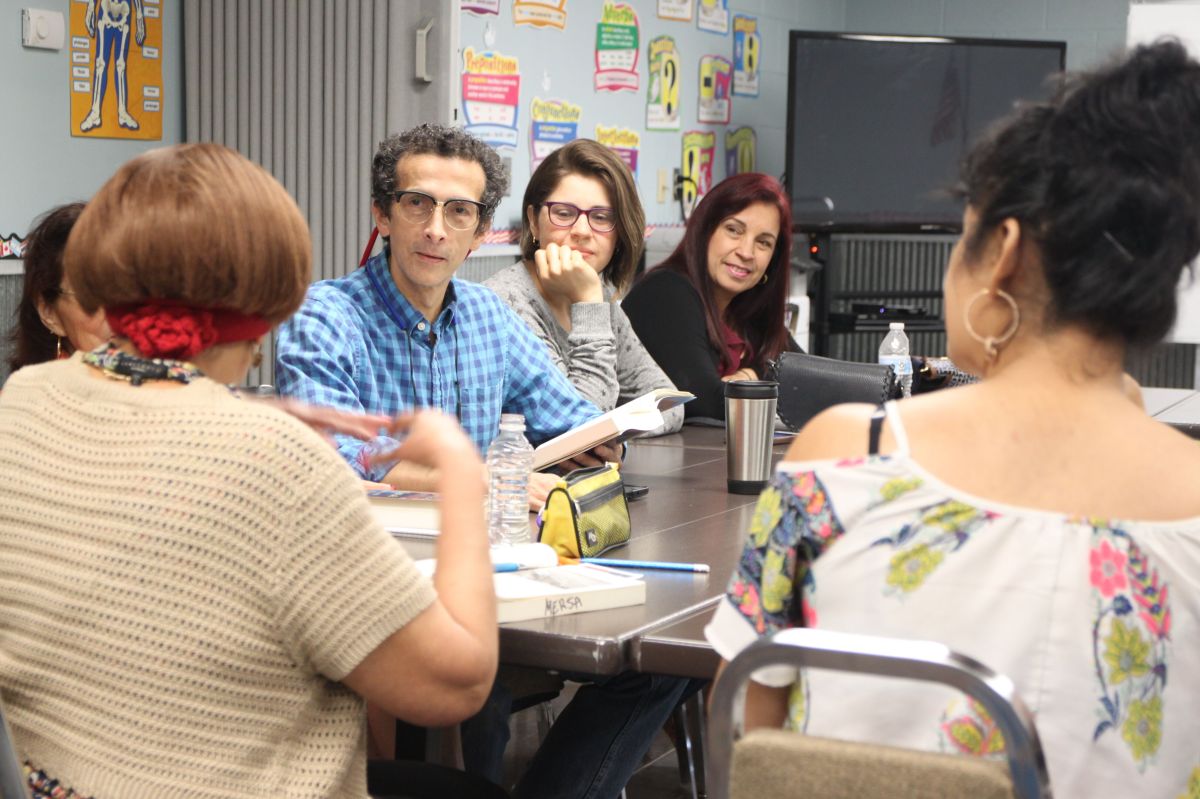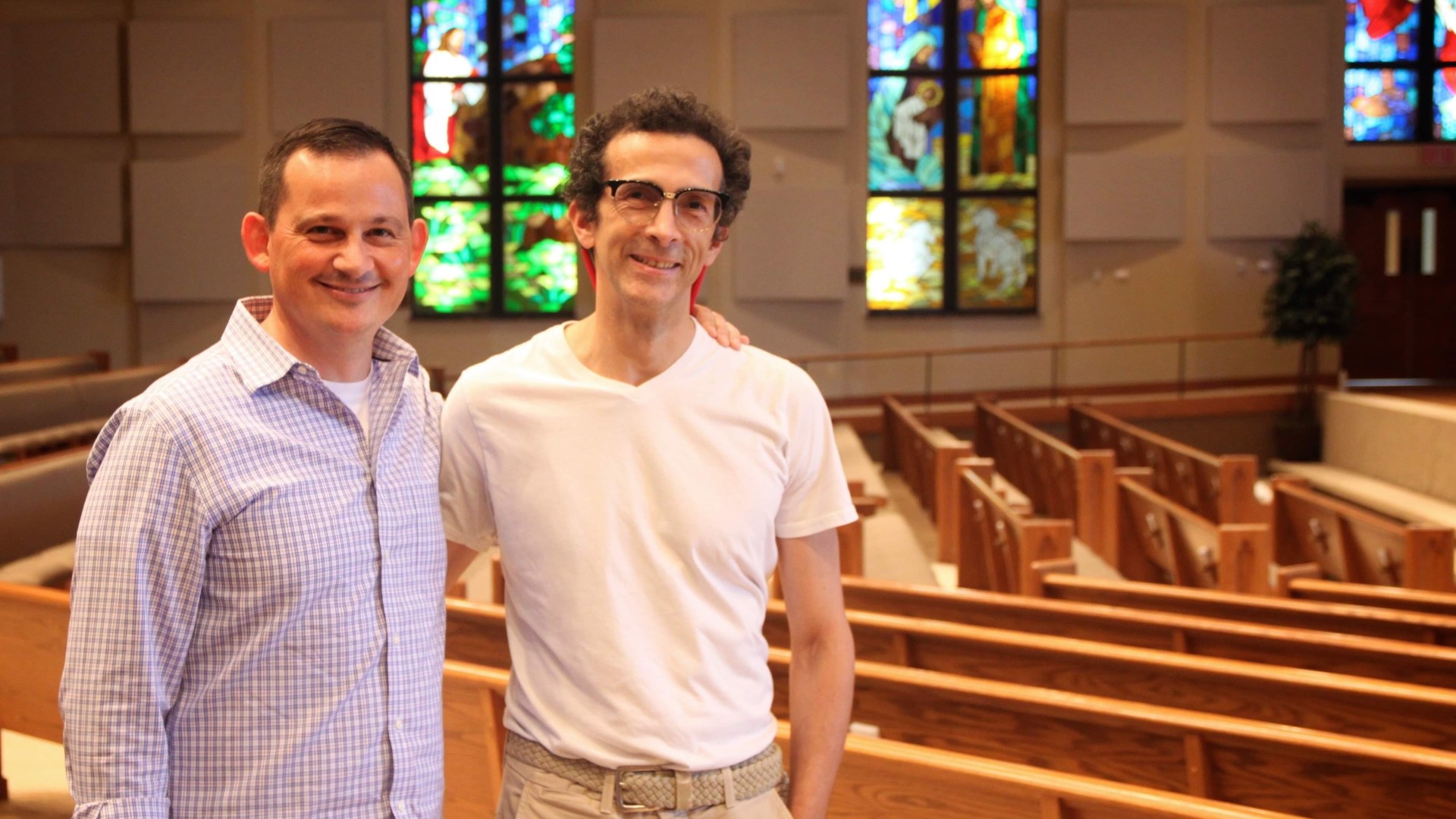Editor’s note: Last Thursday, Politico reported that Trump administration advisers had proposed dropping the US refugee cap to zero next year, to the dismay of advocates like the National Association of Evangelicals’ humanitarian arm World Relief.
The Trump administration already cut the number of refugees the US will accept by more than half of the typical 75,000–95,000 range. Another reduction, advocates say, will prevent family reunifications and leave thousands in peril. Some warn that this move would actually increase the number of asylum seekers at the US southern border.
Faced with the threat of blocking nearly all refugees, many leaders have ready testimony of how their congregations have been blessed and strengthened by migrants who fled to the US.
Eric Costanzo leads a church in suburban Tulsa, Oklahoma. Over the past decade, the government has resettled increasing numbers of refugees in their city, the largest group being evangelical Christians from Myanmar . Many have found an unlikely home at South Tulsa Baptist Church , a congregation of around 1,200 people which now has more than 150 immigrants and refugees from 30 countries involved in its programs. These refugees and immigrants serve in ministries like sewing classes, a Chinese school for all ages including families who have adopted from China, and international potlucks.
Costanzo’s church recently opened a refugee resource center where some of the refugees themselves volunteer. Other refugees and immigrants have connected the church to mission trips, partnerships, and church planting opportunities.
The Oklahoma pastor shared with CT about one leader in his church who has demonstrated the potential among immigrants and refugees when given the opportunity to thrive in a safe and stable country—knowing there are thousands of others who are serving their congregations and communities with a unique sense of gratitude and compassion.
I first met Cesar Quintero in early 2018 through our church’s multifaceted ESL program. He and his wife Elena, who holds dual citizenship, had only recently arrived in the US, having made the difficult decision to remain here rather than returning to the scarcity and danger of their homeland of Venezuela. Their friends and neighbors had fully expected them to return. They left all their possessions behind. Cesar had to ask a friend to retrieve and mail their most important documents to their new home in Tulsa.
Like everyone who meets Cesar, I was immediately taken with him. He is incredibly engaging. He is also an idea factory and one of the most entrepreneurial people I’ve ever met. (I fully expect to see him on Shark Tank someday.)
Cesar was eager to get involved in the work we are doing, and it took almost no time for him to put down roots in our church. “One of my main goals in life is to make people laugh,” said Cesar, “and I have experienced more laughter and joy with my teachers and friends at our church than I ever could have imagined.”

For the last year and a half, Cesar has been working with our church’s international and refugee ministry toward two main goals: help fellow immigrants become better connected in the community and help people in Tulsa and wherever else God places him to better understand who immigrants are and how much they have to contribute.
Cesar has a background in TV and radio, which makes him an excellent communicator. It is powerful to watch the walls of fear and misunderstanding that many people have built up regarding immigrants come down quickly as he speaks. Each time he addresses a group of Christians, he concludes with Galatians 3:28: There is neither Jew nor Gentile, neither slave nor free, nor is there male and female, for you are all one in Christ Jesus.
Cesar spent most of his career in Caracas, the capital of Venezuela, when there were still ample opportunities to find success. He worked in the entertainment industry, ran a radio program, and even became a top salesman. (He won a trip to Hawaii after a particularly great year. Providentially, the travel visa for that vacation would later enable him to begin the legal immigration process of obtaining a green card.)
But things changed.
“In the last several years, we have watched our country go from being one of the richest in Latin America to one of the poorest and most violent,” Cesar said. “There are shortages of food and medicine, and I’ve actually witnessed people eating out of the garbage.”
Not long before immigrating to the US, Cesar and his sister were themselves victims of what Venezuelans call a secuestro express, which in Spanish means “express kidnapping.” Cesar talks about this event almost in passing, so I press him for more details—you’re held captive until kidnappers empty enough from your accounts to satisfy their demands, threatening your family or ratcheting up the torture if it’s not enough.
Though God looked out for him during his secuestro, Cesar said that afterward his emotions finally released and he felt the trauma linger for years. The risk of violence was not a fear; it was a reality.
Cesar and Elena made the decision to settle in Tulsa, a place where they experience a sense of health, safety, and peace that they had lost back home. They can dream bigger here. “We both have personal and career goals,” he said. “We are committed to making a difference in the lives of others and contributing from our success to the improvement of this greatcountry.”
And that’s how Cesar ended up at our church. In the midst of applying for and receiving his green card, he began volunteering and networking around Tulsa. He joined our advanced English class and soon became the social coordinator, organizing meals and get-togethers for their families. He also facilitates a book discussion group for those who want extra practice outside of class.
As his involvement grew, Cesar became a key leader in our international Bible studies and one of our paid translators for study materials and Sunday morning sermons.
He’s arranging for students in the English class—native speakers of Burmese, Arabic, Hindi, Chinese, and Spanish—to serve as volunteer translators in schools. The administrators were thrilled with his plan to train the volunteers and have them “on call” to help, and our local community college has reached out to Cesar and asked him to present this plan for their campuses as well.
“I believe God has many things for me to do and contribute in Tulsa,” said Cesar, a certified yoga instructor who teaches “stretching and fitness” classes at church. “I want to do my best to help other immigrants understand why it is so important to learn English and improve their lives so that they too can help those in need.”
Last year, Cesar was among a small group of our immigrants and refugees who were invited to engage in a private dialogue with US Senator James Lankford. Even though Cesar is not yet eligible to vote, Lankford took interest in his perspective and what he was able to share on behalf of fellow immigrants.
Cesar wants his thankfulness to not only be known, but to be contagious:
I want to continue speaking to groups and sharing with others how God has provided for me and Elena, and I want continue learning every possible way to say ‘thank you’ in English to the people of my church.
Even if I could learn all the words, it would never be enough. I want to thank them all for their generosity—not only in giving money but in giving their time and commitment to immigrants like me. I know it all comes from love.
In the year that he came to the US, the number of refugees allowed in was cut in half. For Venezuelans and others, it has become increasingly difficult to seek safety and a new life in the US. Had it not been for his wife’s dual citizenship, things might have turned out differently and we likely would not have been blessed to know Cesar.
If further efforts to limit refugees, asylum seekers, and TPS holders are successful, I can’t help but think about how many more Cesars we will miss.
Eric Costanzo is lead pastor at South Tulsa Baptist Church in Tulsa, Oklahoma. You can follow him on Twitter @eric_costanzo or visit his website at http://ericcostanzo.me .










